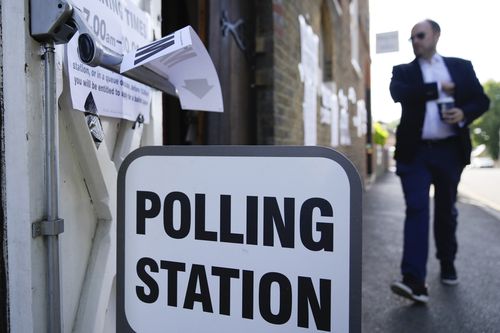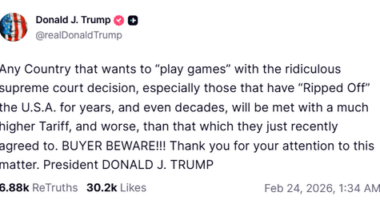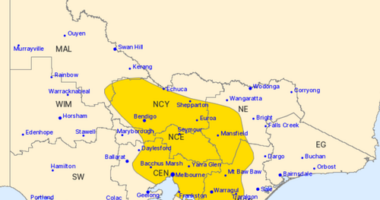Share this @internewscast.com
In the lead-up to its election in July 2024, the Labour Party committed to reducing the voting age for Britain’s parliamentary elections. Meanwhile, Scotland and Wales already permit 16- and 17-year-olds to vote in local as well as regional elections.
The UK will now join a select group of nations where 16-year-olds are allowed to vote, such as Austria, Brazil, and Ecuador. Within the European Union, countries like Belgium, Germany, and Malta permit voting from age 16 for European parliament elections.

This decision is part of broader reforms introduced on Thursday, which also aim to tighten campaign finance rules. This includes preventing shell companies with unclear ownership from donating to political parties. According to Democracy Minister Rushanara Ali, these changes will enhance protections against foreign meddling in UK politics.
There will also be tougher sentences for people convicted of intimidating candidates.
Additionally, the government said it will introduce automatic voter registration and allow voters to use bank cards as a form of identification at polling stations.
The previous Conservative government introduced a requirement for voters to show photo identification in 2022, a measure it said would combat fraud. Critics argued it could disenfranchise millions of voters, particularly the young, the poor and members of ethnic minorities.
Elections watchdog the Electoral Commission estimates that about 750,000 people did not vote in last year’s election because they lacked ID.
Turnout in the 2024 election was 59.7 per cent, the lowest level in more than two decades.

Harry Quilter-Pinner, head of left-leaning think tank the Institute for Public Policy Research, said the changes were “the biggest reform to our electoral system since 1969” when the voting age was lowered to 18 from 21.
The changes must be approved by parliament. The next national election must be held by 2029.
“For too long, public trust in our democracy has been damaged and faith in our institutions has been allowed to decline,” Deputy Prime Minister Angela Rayner said.
“We are taking action to break down barriers to participation that will ensure more people have the opportunity to engage in UK democracy.”
Stuart Fox, a politics lecturer at the University of Exeter who has studied youth voting, said it’s “far from clear” whether lowering the voting age actually increases youth engagement.
“It is right to help young people be heard,” he said.
“But there are other measures which are more effective at getting young people to vote â particularly those from the poorest backgrounds who are by far the least likely to vote â such as beefing up the citizenship curriculum or expanding the provision of volunteering programs in schools.”












